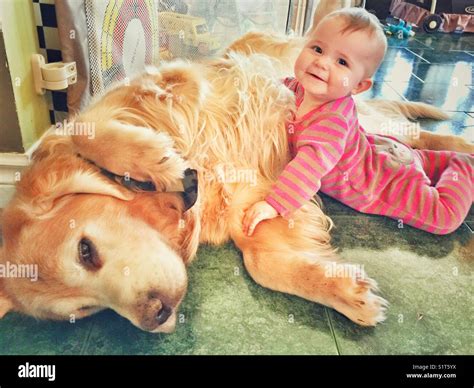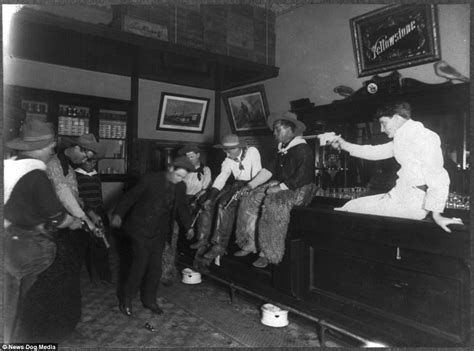
A corgi named Louis has become an internet sensation after a video showcasing his dramatic displeasure with a camping trip went viral. The canine’s “aggressive” behavior, including nipping and vocal protests, has been humorously interpreted as his way of demanding an immediate return home, captivating audiences worldwide.
Louis, a Pembroke Welsh Corgi, stars in a viral TikTok video that has garnered significant attention due to his apparent dislike for camping. In the video, shared by his owners, Louis expresses his discontent through a series of behaviors that some might interpret as aggression, but which his owners playfully characterize as a tantrum. He nips at their heels, vocalizes his displeasure, and generally makes it clear that he’s not enjoying the outdoor experience. The video, which captures the essence of Louis’s camping woes, has resonated with many viewers, leading to widespread sharing and commentary across various social media platforms.
The clip begins with Louis’s owners setting up camp, an activity he clearly opposes. As they unpack and arrange their gear, Louis can be seen actively trying to impede their progress. His methods include gentle nips at their ankles and persistent barking, seemingly aimed at communicating his desire to leave. The video’s caption humorously frames Louis’s actions as an urgent plea to return home, emphasizing his strong preference for the comforts of home over the ruggedness of the outdoors.
The video quickly gained traction, amassing millions of views and thousands of comments. Many viewers found Louis’s behavior relatable, sharing stories of their own pets’ aversion to certain activities. Others praised Louis’s expressiveness, noting the clarity with which he conveys his feelings. The overwhelming response to the video underscores the universal appeal of animals displaying human-like emotions and behaviors.
“He’s telling you exactly how he feels,” one user commented, highlighting the dog’s clear communication. “My corgi would do the same thing,” another added, suggesting that this behavior might be typical for the breed.
The popularity of the video also sparked a broader discussion about pet behavior and responsible pet ownership. Some commentators cautioned against anthropomorphizing pets, emphasizing the importance of understanding their actual needs and motivations. Others defended the owners, pointing out that Louis appeared to be well-cared for and that the video was clearly intended as lighthearted entertainment.
The incident with Louis also brings attention to the inherent challenges and considerations involved in bringing pets along for outdoor activities. While some pets thrive in natural environments, others may find them stressful or uncomfortable. Factors such as temperature, terrain, and exposure to unfamiliar stimuli can all impact a pet’s experience. Responsible pet owners must carefully assess their pet’s temperament and needs before embarking on outdoor adventures.
According to experts, understanding breed-specific traits is also critical in managing pet behavior. Corgis, for instance, are known for their herding instincts, which may explain Louis’s tendency to nip at his owners’ heels. By recognizing these inherent behaviors, owners can better anticipate and address potential challenges.
This isn’t the first time a pet’s antics have captivated the internet. Social media platforms are replete with videos of animals engaging in humorous or heartwarming behaviors. These videos often go viral due to their relatability and the emotional connection they foster between viewers and the animals featured.
The video of Louis serves as a reminder of the unique bond between humans and their pets. It also highlights the power of social media to amplify these connections, creating a sense of community among animal lovers worldwide. Through his “aggressive” camping tantrum, Louis has not only entertained millions but also sparked conversations about pet behavior, responsible pet ownership, and the joys of sharing our lives with animals.
Further details from the video and comments sections reveal a deeper understanding of Louis’s character and the situation. The owners seem to be experienced campers and dog owners, making sure Louis is safe and well-cared for. They provide water, shade, and regular breaks. The nipping, while interpreted as a tantrum, might also be a sign of stress or anxiety, something the owners are attentive to. They acknowledged that Louis might not be cut out for camping and are considering alternative activities for him in the future.
One commentator suggested, “Maybe try a ‘glamping’ experience instead? He might prefer the comforts of a cabin.” This reflects a common sentiment that understanding a pet’s preferences is key to ensuring their happiness and well-being.
The video of Louis has also shone a spotlight on the Pembroke Welsh Corgi breed. Renowned for their intelligence, loyalty, and distinctive appearance, corgis have become increasingly popular pets in recent years. Their herding background often translates into playful and energetic behavior, which can sometimes be misinterpreted. It’s vital for potential corgi owners to be aware of their specific needs and traits to ensure a harmonious relationship.
The American Kennel Club (AKC) describes Pembroke Welsh Corgis as “affectionate and intelligent,” but also notes their tendency to be “independent and strong-willed.” Understanding these traits can help owners better manage their corgis’ behavior and provide appropriate training and socialization.
Many viewers have expressed concerns about the term “aggressive” being used to describe Louis’s behavior. Animal behaviorists suggest that the term “assertive” or “demanding” might be more accurate. Aggression typically implies an intent to harm, which doesn’t seem to be the case with Louis. His actions appear to be driven by a desire to communicate his discomfort and persuade his owners to change their plans.
Dr. Emily Weiss, a certified animal behaviorist, explained, “It’s important to differentiate between playful nipping and true aggression. In many cases, what owners perceive as aggression is simply a dog’s way of expressing frustration or anxiety.”
The discussion around Louis’s camping tantrum has also highlighted the importance of reading a dog’s body language. Dogs communicate through a variety of signals, including facial expressions, posture, and vocalizations. By learning to interpret these signals, owners can better understand their dogs’ needs and prevent potential problems.
For example, a dog that is stressed or anxious might exhibit signs such as panting, lip licking, yawning, or a tucked tail. Recognizing these signs early on can help owners take steps to alleviate their dog’s discomfort and avoid escalation.
The viral video of Louis has sparked a broader conversation about the challenges and rewards of pet ownership. While pets can bring immense joy and companionship, they also require significant time, effort, and resources. Responsible pet ownership involves understanding a pet’s individual needs, providing appropriate care, and seeking professional help when necessary.
The American Veterinary Medical Association (AVMA) emphasizes the importance of responsible pet ownership, stating, “Responsible pet owners provide for their pet’s physical, emotional, and social needs, ensuring their well-being and the safety of the community.”
In the wake of Louis’s viral fame, several pet product companies have reached out to his owners, offering free samples and sponsorships. This highlights the growing influence of pet influencers on social media. Pet influencers can use their platforms to promote responsible pet ownership, educate their followers about pet care, and advocate for animal welfare.
However, it’s also important to be aware of the potential downsides of pet influencer culture. Some influencers may prioritize profit over the well-being of their pets, promoting products that are not safe or appropriate. Consumers should always do their own research and consult with a veterinarian before purchasing any product for their pet.
The story of Louis’s camping tantrum is a reminder that pets are individuals with their own unique personalities and preferences. While some pets may thrive in certain environments or activities, others may not. The key to responsible pet ownership is to understand a pet’s needs and provide them with the best possible care, regardless of whether they are enjoying a camping trip or prefer to stay at home.
The owners of Louis have demonstrated a commitment to his well-being by listening to his concerns and adjusting their plans accordingly. Their willingness to prioritize his needs is a testament to the strong bond they share and serves as an example for other pet owners to follow.
Louis’s story also sheds light on the evolving role of pets in modern society. Pets are increasingly viewed as members of the family, and their well-being is a top priority for many owners. This trend has led to a growing demand for high-quality pet products and services, as well as a greater emphasis on responsible pet ownership.
The Pet Industry Joint Advisory Council (PIJAC) estimates that Americans spent over $100 billion on their pets in 2020, a figure that is expected to continue to rise in the coming years. This reflects the increasing importance of pets in people’s lives and the willingness to invest in their well-being.
As Louis’s story continues to circulate online, it’s likely to spark further conversations about pet behavior, responsible pet ownership, and the unique bond between humans and animals. His “aggressive” camping tantrum may have been a humorous incident, but it also serves as a valuable reminder of the importance of understanding and respecting the needs of our furry companions.
The situation also brings to the forefront the consideration of alternative vacation options for pets who don’t enjoy traditional camping. Pet-friendly hotels, dog parks, and even specialized pet resorts can provide a more comfortable and enjoyable experience for pets who prefer indoor environments or structured activities.
Furthermore, the incident emphasizes the importance of proper training and socialization for pets. While Louis’s behavior may be seen as comical, it also highlights the potential challenges of owning a dog with strong opinions and a tendency to express them assertively. Early training and socialization can help dogs develop better coping mechanisms and reduce the likelihood of behavioral issues.
The Association of Professional Dog Trainers (APDT) offers resources and guidance for owners seeking to train their dogs. Their website provides a directory of qualified trainers and information on various training methods.
Finally, Louis’s story serves as a reminder that pet ownership is a lifelong commitment. Pets rely on their owners for food, shelter, and companionship, and it’s essential to be prepared for the challenges and responsibilities that come with pet ownership.
The Humane Society of the United States (HSUS) offers resources and guidance for prospective pet owners, helping them make informed decisions about pet adoption and ownership.
The video of Louis has not only entertained millions but also sparked meaningful conversations about pet behavior, responsible pet ownership, and the evolving role of pets in modern society. His “aggressive” camping tantrum may be a humorous anecdote, but it also serves as a valuable reminder of the importance of understanding, respecting, and prioritizing the needs of our beloved animal companions. It has also brought attention to the need for more open discussion about breed-specific behaviors and how to properly interpret them.
The internet’s reaction to Louis’s camping antics showcases the power of shared experiences. Many pet owners have faced similar situations, and the video provides a sense of validation and camaraderie. It’s a reminder that pet ownership is not always easy, but the rewards of companionship and unconditional love far outweigh the challenges.
Moreover, Louis’s story highlights the importance of adaptability in pet ownership. Just as humans have different personalities and preferences, so do pets. Being willing to adjust plans and expectations based on a pet’s needs is crucial for ensuring their well-being and happiness.
The discussion surrounding Louis’s behavior also underscores the need for empathy and understanding. While it’s easy to laugh at a dog throwing a “tantrum,” it’s important to remember that the dog is likely experiencing genuine discomfort or anxiety. Approaching the situation with empathy and seeking to understand the underlying cause of the behavior is essential for resolving the issue effectively.
The impact of Louis’s video extends beyond entertainment. It serves as a catalyst for reflection on our relationships with our pets and the responsibilities we have towards them. It encourages us to be more mindful of their needs, more attentive to their communication signals, and more willing to adapt our lives to accommodate their unique personalities and preferences.
The story also brings attention to the importance of seeking professional advice when dealing with pet behavior issues. A certified animal behaviorist or veterinarian can provide valuable insights and guidance, helping owners understand the underlying causes of the behavior and develop effective strategies for addressing it.
Louis’s camping tantrum has also sparked a surge of interest in corgi-specific resources and information. Prospective corgi owners are now more aware of the breed’s unique characteristics and potential challenges. This increased awareness can lead to more informed adoption decisions and better preparation for corgi ownership.
In conclusion, the viral video of Louis the corgi’s “aggressive” camping tantrum has generated a wide range of reactions and discussions. From humorous anecdotes to insightful reflections on pet behavior and responsible ownership, Louis’s story has touched the hearts and minds of millions. It serves as a reminder that pets are individuals with their own unique personalities and needs, and that the key to a harmonious relationship is understanding, empathy, and adaptability. His story will undoubtedly continue to be shared and discussed, inspiring pet owners around the world to be more mindful and compassionate towards their furry companions. Furthermore, it has also underscored the value of using social media platforms responsibly and for educational purposes, fostering a community centered around animal welfare and responsible pet ownership.
Frequently Asked Questions (FAQs)
1. What exactly did Louis the corgi do in the viral video?
Louis, a Pembroke Welsh Corgi, was filmed expressing his displeasure with a camping trip by nipping at his owners’ heels and vocalizing his discontent. This behavior was humorously interpreted as a “tantrum” and a demand to go home.
2. Was Louis actually being aggressive in the video?
While some might perceive Louis’s behavior as aggressive, it’s more accurately described as assertive or demanding. Animal behaviorists suggest that his actions were likely driven by a desire to communicate his discomfort and persuade his owners to change their plans, rather than an intent to harm.
3. What are some common reasons why a dog might dislike camping?
Dogs may dislike camping due to various factors, including unfamiliar stimuli, changes in routine, temperature fluctuations, exposure to insects, and a general preference for the comforts of home. Some dogs may also experience anxiety or stress in unfamiliar environments.
4. What can pet owners do to make camping more enjoyable for their dogs?
Pet owners can make camping more enjoyable for their dogs by ensuring they have adequate water, shade, and rest. It’s also important to choose a pet-friendly campsite, provide familiar toys and bedding, and gradually acclimate the dog to the outdoor environment. Understanding breed-specific behaviors and anticipating needs can also help create a more positive experience. If the dog consistently displays signs of distress, alternative vacation options should be considered.
5. What is the main takeaway from the story of Louis the corgi’s camping tantrum?
The main takeaway is the importance of understanding and respecting a pet’s individual needs and preferences. Pets are individuals with their own unique personalities, and what works for one pet may not work for another. Responsible pet ownership involves being attentive to a pet’s communication signals, adapting plans to accommodate their needs, and seeking professional help when necessary. The story also highlights the evolving role of pets in modern society and the growing emphasis on responsible pet ownership.









